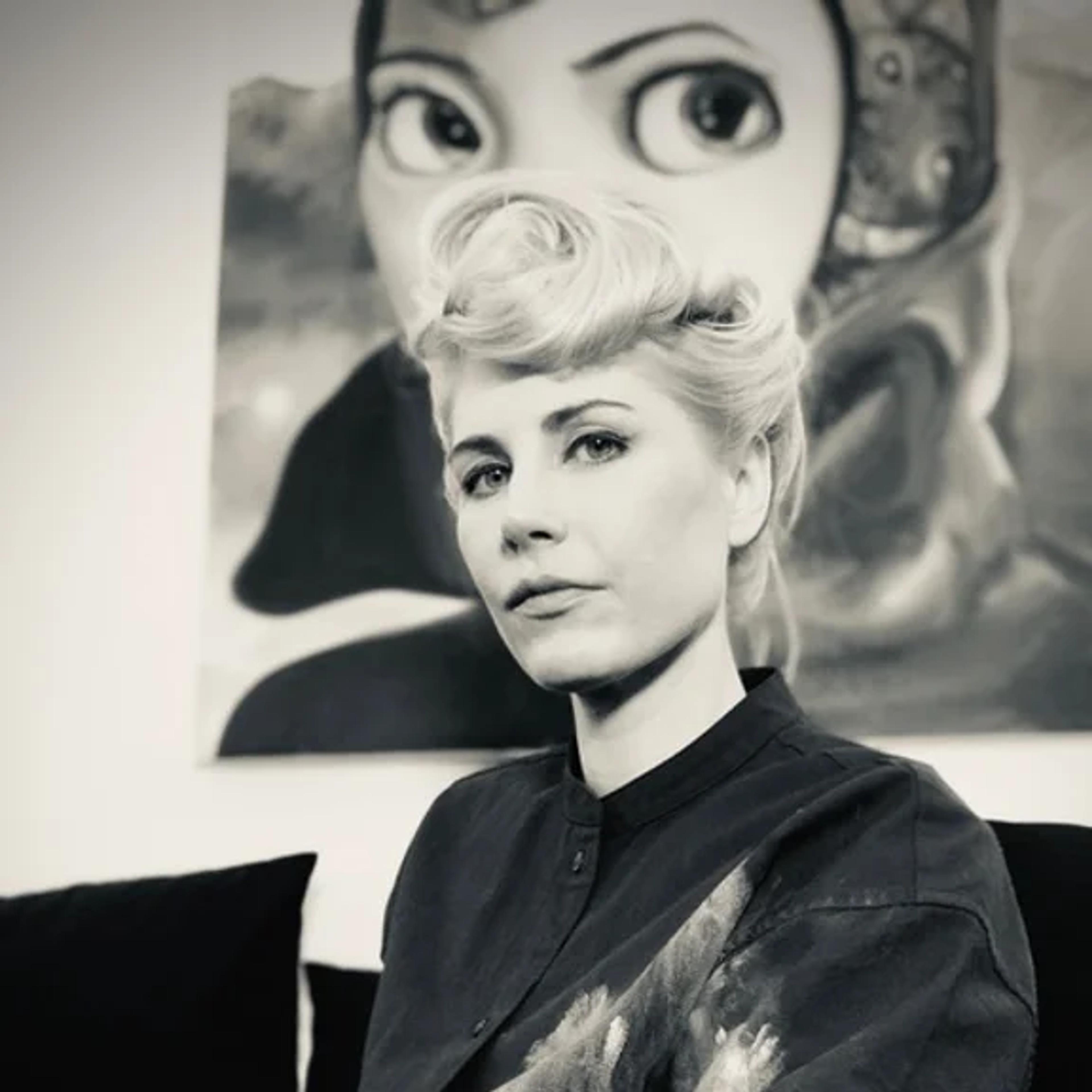Conversation
Charlie Stein
"Narration strengthens our sense of empathy."

Charlie Stein's focus lies on social structures, digital media and contemporary forms of communication, questioning dominant cultural aesthetics and perceptions within our highly digitized, visually overstimulated world.
Her material is gathered through extensive research and translated into drawings, installations, sculptures, paintings and text. She holds a postgraduate degree in fine art from the State Academy of Fine Art where she studied at the classes of Christian Jankowski and Rainer Ganahl in Stuttgart, as well as the class of Gerhard Merz in Munich. She was a recipient of a DAAD scholarship in 2010 to reside in Beijing, China. Recent exhibitions include Manifesta 11, Villa Merkel, the Songjiang Art Museum in Shanghai, Museum Villa Rot and the 2017 edition of the Istanbul Biennial.
MADELEINE SCHWINGE: Can art enhance social change, what role could artists and their work play in this? Could one even consider a leading role?
CHARLIE STEIN: In my understanding, art is in the position of the avant-garde, which seeks to detect where societies are in a state of flux, even before this is documented in writing or it ultimately becomes mainstream. Art thus takes on the function of a seismograph in our society and it indicates where it is all going.
MS: In the face of the radical upheavals and crises of our time, may we even dare to hope for a better future? What effect could narrative have on the process of shaping such a future?
CS: In general, one should always hope for a better future. First of all, this is deeply human, and secondly, for the majority of the population, the overall living situation has been steadily improving. But especially in the way we engage with the socially disadvantaged, the minorities and the otherwise underrepresented groups, there is a lot that needs to be corrected. Narrative helps to understand what others are going through, it strengthens our sense of empathy and helps us to perceive our own privileges and to critically question how we can make the world a more equitable place.
MS: What might be the impulses of a transdisciplinary dialogue between art and other disciplines to catalyse social transformation? Which fields of expertise could be fruitful for your own work?
CS: Sociology and cultural theory are central to my work. Of course, literature too plays a significant role. I do often feel that the art world is relatively rarely " frequented" by many of other disciplines. Indeed, it is even often pejoratively sidelined like a cranky third-degree relative, dismissed as too aloof to engage in discussion. That is mainly the result of the persistent myth of the "artistic genius on the fringes of society," as John Ruskin described it at the turn of the previous century. As long as this stereotype is applied to any discourse with artists, the discussion will not become more fruitful and the exchange will remain a mere caricature. Artists belong in expert commissions, on panels, and must be made accessible to a broader public. This is a political task. Evenif he never said it in fact, Churchill's much and misquoted response to the question, on whether spending on the arts should not be cut in the wake of war, strikes a crucial nerve: "If we cut the art funding - then what are we fighting for?"
MS: Assuming it would be possible to build a better world on the ruins of the old one, how could this new world look like? What do you wish for a better tomorrow?
CS: There needs to evolve greater engagement to inclusion of minorities, people with impairments, and also a discourse on the marginalization of the LGBQT* community. After so long of equality on paper, the fact that Gender Inequality still continues to exist regarding fair treatment is a shocking reality. It ought to be embarrassing to every male in Germany that no matter how smart or assertive his wife or daughter is, she is more likely to earn less, could become a victim of sexual violence and harassment, and could end up in poverty in her old age. Providing equal chances creates more opportunities, it makes a society resilient and cooperative. No one can do it all alone. Society must learn to help and support people with less privilege as well. Only in this way transformation to a fair society can be accomplished successfully in the long term.
MS: It is often said that a distinctive skill of artists and creatives is to consistently seek the new, and start from scratch on a blank paper. When you start a new project, what strategies or rituals do you use?
CS: I think that these are quite fluid processes for me by now. I have learned to trust my own rhythm very much, I don't argue with myself anymore, I treat myself like a normal grown-up person - to a certain degree even like another individual. Respect for yourself prevents you from forcing things up. When I start something new, I have already decided it beforehand, or I want it deep inside myself. It doesn't cost me any effort actually, and I'm not afraid of new challenges. I have fought hard to be allowed to have challenges - this is already a form of success.
Charlie Stein, Kristin Hjellegjerde Gallery
Front Photo. © Charlie Stein, in the background her painting "Get Away Plane"